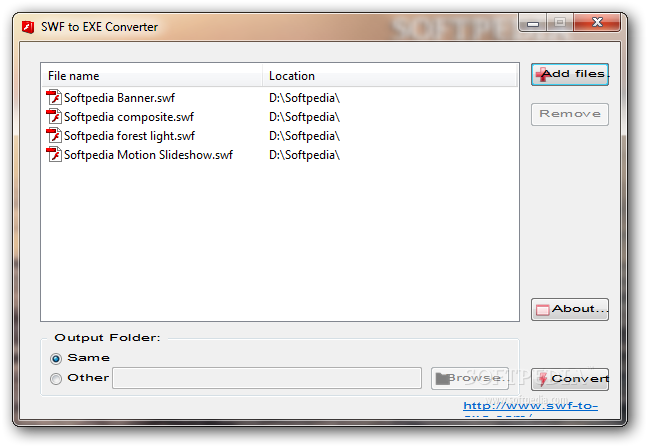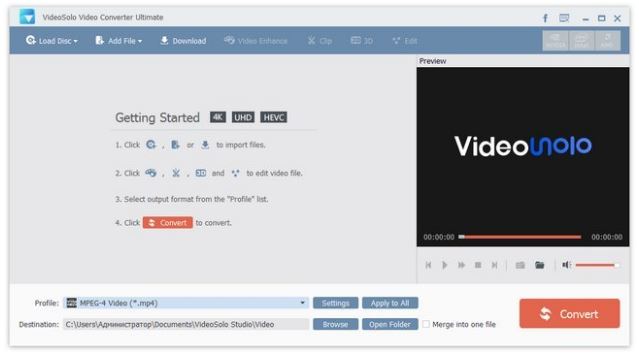
- #Swf to video converter 1.5.2 portable update#
- #Swf to video converter 1.5.2 portable upgrade#
- #Swf to video converter 1.5.2 portable code#
- #Swf to video converter 1.5.2 portable password#
#Swf to video converter 1.5.2 portable upgrade#
Users are advised to upgrade to Apache InLong 1.3.0 or newer.

#Swf to video converter 1.5.2 portable code#
In versions of Apache InLong prior to 1.3.0, an attacker with sufficient privileges to specify MySQL JDBC connection URL parameters and to write arbitrary data to the MySQL database, could cause this data to be deserialized by Apache InLong, potentially leading to Remote Code Execution on the Apache InLong server. In Apache Airflow, prior to version 2.4.1, deactivating a user wouldn't prevent an already authenticated user from being able to continue using the UI or API.
#Swf to video converter 1.5.2 portable update#
It is recommended to update to version 1.16. This issue affects Apache XML Graphics prior to 1.16. As of this release, the inputted strings are properly escaped when rendered.Ī vulnerability in Batik of Apache XML Graphics allows an attacker to run untrusted Java code from an SVG. In particular, the end-user could enter javascript or similar and this would be executed. Prior to 2.0.0-M9, it was possible for an end-user to set the value of an editable string property of a domain object to a value that would be rendered unchanged when the value was saved. To revert to the original behaviour, the administrator would therefore need to set these configuration parameter: -allow-remote-access=true -random-web-admin-password=false Note also that the h2 webconsole is never available in production mode, so these safeguards are only to ensure that the webconsole is secured by default also in prototype mode.
#Swf to video converter 1.5.2 portable password#
The password is printed to the log, as "webAdminPass: xxx" (where "xxx") is the password.


As an additional safeguard, the new '-random-web-admin-password' configuration parameter (enabled by default) requires that the administrator use a randomly generated password to use the console. As of 2.0.0-M8, this can now be done using the '-allow-remote-access' configuration property the web console will be unavailable without setting this configuration. It was felt that it is safer to require the developer to explicitly enable this capability. When running in prototype mode, the h2 webconsole module (accessible from the Prototype menu) is automatically made available with the ability to directly query the database. This issue is fixed by limiting JNDI to allow only the use of the java protocol or no protocol. Users are recommended to upgrade to Apache Commons Text 1.10.0, which disables the problematic interpolators by default.Īpache Flume versions 1.4.0 through 1.10.1 are vulnerable to a remote code execution (RCE) attack when a configuration uses a JMS Source with an unsafe providerURL. These lookups are: - "script" - execute expressions using the JVM script execution engine (javax.script) - "dns" - resolve dns records - "url" - load values from urls, including from remote servers Applications using the interpolation defaults in the affected versions may be vulnerable to remote code execution or unintentional contact with remote servers if untrusted configuration values are used. Starting with version 1.5 and continuing through 1.9, the set of default Lookup instances included interpolators that could result in arbitrary code execution or contact with remote servers. The standard format for interpolation is "$", where "prefix" is used to locate an instance of .lookup.StringLookup that performs the interpolation. Users are recommended to upgrade to version 1.16.Īpache Commons Text performs variable interpolation, allowing properties to be dynamically evaluated and expanded. Users should upgrade to 0.13.3 which addresses this issue or use a later version of Java to avoid it.Ī vulnerability in Batik of Apache XML Graphics allows an attacker to run Java code from untrusted SVG via JavaScript. Apache IoTDB version 0.12.2 to 0.12.6, 0.13.0 to 0.13.2 are vulnerable to a Denial of Service attack when accepting untrusted patterns for REGEXP queries with Java 8.


 0 kommentar(er)
0 kommentar(er)
